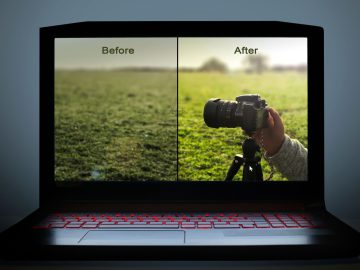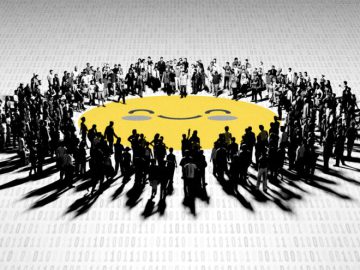New Delhi: The ministry of electronics and information technology (MeitY) is funding two research projects aimed at detecting fake videos, audios, and images generated using artificial intelligence (AI), said a status report submitted on November 21 to the Delhi high court.
The ministry of electronics and information technology (MeitY) is funding two research projects aimed at detecting fake videos, audios, and images generated using artificial intelligence (AI) (Photo for representation)
The ministry has also established a committee on November 20 to address deepfakes. The court has directed this committee to submit its report as soon as possible, preferably within three months.
The report was filed in response to an October 24 order from a division bench comprising the then Chief Justice Manmohan and Justice Tushar Rao Gedela, in cases filed by lawyer Chaitanya Rohilla and editor-in-chief of India TV, Rajat Sharma
The first project, “Fake Speech Detection using Deep Learning Framework,” started in December 2021 and is set to end in December 2024 with a financial outlay of ₹47.846 lakhs. It aims to detect fake speech, create a web interface for detection software, and develop a“speaker verification software platform designed for testing any fake speech detection system”
The second project, “Design and Development of Software for Detecting Deepfake Videos and Images”, was funded by MeitY from January 2022 to March 2024. Under this project, C-DAC Hyderabad and Kolkata developed a prototype tool to detect deepfakes. It has been designed as a web portal and a desktop application.
“The web-based tool is currently in testing phase and provides limited access,” the status report. The desktop application, called “FakeCheck”, has been developed to detect deepfakes without needing to connect to the internet. FakeCheck has been shared with a few law enforcement agencies for testing and feedback, as per the status report.
New committee to deal with deepfakes
On November 20, MeitY constituted a nine-member committee to address the issue of deepfakes. This committee includes three members from MeitY (group coordinator of emerging technologies division; a representative each from the cyber security and cyber laws division); director of Indian Cyber Crime Coordination Centre; a representative from C-DAC Hyderabad; representative from the industry body Data Security Council of India (DSCI); a representative from Amrita Vishwa Vidyapeetham; a legal representative; and Dr Balaraman Ravindran who head IIT Madras’s department of data science and AI. [the way it had been edited, it changed all the designations]
In an order dated November 21, the division bench directed the Indian government to appoint nominees to the committee within a week. The committee is tasked with reviewing suggestions from Rohilla and Sharma, and considering laws from other regions, including the European Union. The court instructed the committee to submit its report “expeditiously,” ideally within three months, after consulting with stakeholders such as intermediaries, TSPs, deepfake victims, and relevant websites.
People familiar with the matter, speaking anonymously, noted that the committee’s members have not yet been finalised, and it has not convened since its formation.
MeitY’s status report also outlined two other groups formed to address AI-related issues.
The first group was formed through an office memorandum on September 25, 2023, to advise the government on AI regulation. Its terms of reference include drafting policies and regulations that balance innovation with oversight, creating contextualised ethical guidelines for India, developing testing and certification mechanisms, and establishing techno-legal AI frameworks. The seven members include the MeitY secretary, the group coordinator of MeitY’s cyber laws division, the secretary of the department of science and technology, a representative from NITI Aayog, NASSCOM’s president, Balaraman Ravindran, and Hitesh Jain of Parinam Law Associates. The additional secretary or joint secretary of MeitY’s emerging technology division serves as the convener. Jain is also the vice president of BJP Mumbai Pradesh, according to his Twitter profile.
On November 9, 2023, MeitY formed a subcommittee for AI Governance Guidelines, chaired by Ravindran. Its four members include Sharad Sharma from iSpirit, Debjani Ghosh (former NASSCOM president, now with NITI Aayog), Jain, and Notan Roy from MeitY. Kavita Bhatia, COO of IndiaAI, is the member convener.
A draft report from this subcommittee, shared with stakeholders on October 7, proposed that MeitY and the office of the PSA create an inter-ministerial AI coordination committee. This body would adopt a whole-of-government approach to AI governance. The draft recommended that MeitY should establish a technical advisory group and act as the coordination point. The report also recommended building an AI incident database to track “actual” AI-related risks in India, reflecting a similar suggestion made by NITI Aayog in 2021, as reported by HT on October 15.





